Are you looking for a way to add a touch of serenity and beauty to your outdoor space? A solar powered water fountain might just be the solution you're searching for. Not only do solar water fountains bring a tranquil ambiance to any environment, but by harnessing the power of the sun, they also provide an eco-friendly and low-maintenance option.
In this guide, we'll explore the various types of solar powered water fountains, the benefits of using solar power, and the key considerations you need to keep in mind when choosing the perfect water fountain for your needs. By the end of this guide, you'll be equipped with the knowledge and expertise needed to make an informed decision on the best solar powered water fountain for your outdoor space.

Benefits of Solar Power
When it comes to powering your water fountain, solar power offers a number of key benefits, including:
Eco-friendliness: By using solar power, you're reducing your carbon footprint and doing your bit for the environment.
Eco-friendliness is a key benefit of using solar power for your water fountain. By harnessing the power of the sun, you're reducing your dependence on non-renewable energy sources and minimizing your carbon footprint. This not only helps to protect the environment but also sets a positive example for others to follow.
The sun is a natural and renewable energy source, and by using it to power your water fountain, you're reducing your reliance on fossil fuels such as coal, oil, and natural gas. These fossil fuels emit harmful greenhouse gases when burned, contributing to climate change and other environmental problems. By using solar power instead, you're doing your part to reduce these emissions and help protect the planet for future generations.
By choosing a solar-powered water fountain, you're making a responsible and sustainable choice for your outdoor space, while also adding a touch of beauty and tranquility to your surroundings. Embrace this sustainable choice with the Swirl - 4 Tier Cascading LED Solar Water Feature from Water Features Adore, which combines the beauty of nature with the latest in solar technology. Enhance your garden with this eco-friendly water feature and enjoy the peaceful ambiance it creates.
Cost-effectiveness: With no ongoing electricity costs, you'll save money on your energy bill in the long run.
Cost-effectiveness is another key advantage of using a solar-powered water fountain. With no ongoing electricity costs, you can enjoy the beauty and tranquility of your water fountain without worrying about the financial impact on your energy bill.
Traditional water fountains that run on electricity can be costly to operate, especially if they are used frequently. The cost of electricity can quickly add up, and this is something you can avoid by choosing a solar-powered water fountain.
With solar power, you'll enjoy the benefits of your water fountain without incurring any additional costs. This means that you can spend your hard-earned money on other things, while still enjoying the relaxing and soothing sounds of flowing water in your outdoor space. Consider the Tempest - Solar Sphere Ball Lighting Water Feature from Water Features Adore, which is not only elegant but also energy-efficient. Check out this cost-saving feature and make a smart investment for your garden.
Convenience: Solar powered water fountains are low-maintenance and require little upkeep, making them the perfect choice for busy individuals.
Convenience is another major benefit of using a solar-powered water fountain. With low-maintenance requirements and little upkeep needed, solar-powered water fountains are the ideal choice for busy individuals who want to add a touch of beauty and tranquility to their outdoor space without having to devote a lot of time and effort to maintenance.
Traditional water fountains often require regular maintenance, such as cleaning and refilling the water, to keep them functioning properly. This can be time-consuming and may require special tools and equipment. With a solar-powered water fountain, however, maintenance is minimal, which means that you can spend your time enjoying your water fountain, rather than maintaining it.
In addition, solar-powered water fountains are typically very easy to install and use. They come equipped with all the necessary components and instructions, so you can set up and start using your water fountain right away. This makes them the perfect choice for individuals who don't have a lot of time or experience with water fountains, but still want to enjoy their benefits. For an example of a convenient, low-maintenance solar-powered water feature, consider the AquaEra - Solar Sphere Ball Water Feature Fountain available at Water Features Adore.
How does a solar powered water fountain work?
A solar powered water fountain operates by using energy from the sun to power a small water pump. The water pump circulates water from a reservoir or basin through the fountain or spout, creating a flow of water.
The key component of a solar powered water fountain is the solar panel, which converts the energy from the sun into electrical energy. This electrical energy is stored in a rechargeable battery, which is used to power the water pump. When the sun is shining, the solar panel provides the energy needed to run the water pump, and when the sun goes down, the energy stored in the battery continues to power the water pump.
It's important to note that the efficiency of a solar powered water fountain depends on the size and quality of the solar panel and the battery used. Higher quality components will result in a more efficient and reliable water fountain, while lower quality components may not be able to provide enough energy to run the water pump for an extended period of time.
Is a solar powered water fountain efficient?
Yes, a solar powered water fountain can be very efficient, provided it has been designed and manufactured with high-quality components. The efficiency of a solar powered water fountain depends on several factors, including the size of the solar panel, the quality of the battery, and the amount of sunlight available in your location.
If you live in an area with ample sun exposure, and you have a high-quality solar panel and battery, a solar powered water fountain can be a highly efficient way to enjoy the soothing sounds of flowing water in your outdoor space. The solar panel will convert the energy from the sun into electrical energy, which will be stored in the battery and used to power the water pump. With no need for an electrical connection, you'll be able to enjoy the benefits of a water fountain without having to worry about running up a high energy bill.
It's important to keep in mind that a solar powered water fountain will not run continuously, as the water pump will only operate when the sun is shining and there is sufficient energy stored in the battery. However, if you have a high-quality system, you can expect it to run for several hours each day, providing a calming and peaceful ambiance in your outdoor space.
Are solar powered water fountains expensive to buy and maintain?
The cost of a solar powered water fountain can vary depending on the size and quality of the system. While some basic models may be relatively affordable, higher-end models with larger solar panels, higher-quality batteries, and more elaborate water fountains may be more expensive. However, despite the initial investment, solar powered water fountains can be a cost-effective option in the long run.
One of the key benefits of solar powered water fountains is that they have no ongoing electricity costs. Unlike traditional water fountains that require a constant supply of electricity, a solar powered water fountain uses energy from the sun to power the water pump, so you won't have to worry about paying for electricity each month.
In terms of maintenance, solar powered water fountains are relatively low-maintenance and require little upkeep. There's no need to worry about electrical connections, and the components of the system are designed to be weather-resistant, so you won't have to worry about maintenance issues due to exposure to the elements.
Overall, while a solar powered water fountain may require an initial investment, the long-term cost savings, combined with the low maintenance requirements, make it a cost-effective option for those looking to add a water fountain to their outdoor space.
Can solar powered water fountains be used in any location?
Solar powered water fountains can be used in a variety of locations, but their efficiency and effectiveness will depend on the amount of sunlight they receive. In general, solar powered water fountains work best in areas with abundant sunlight, such as southern-facing locations in the Northern Hemisphere or northern-facing locations in the Southern Hemisphere.
It's important to note that solar powered water fountains require direct sunlight to function properly. If the feature is placed in an area that receives significant shade throughout the day, it may not be able to generate enough energy to run the water pump effectively. Additionally, during periods of extended cloudy weather, the feature may not function as efficiently.
That being said, there are a number of design elements that can help optimize the performance of a solar powered water fountain, such as installing it in a sunny location, orienting it towards the sun, and using high-quality solar panels and batteries.
How much sun exposure is needed to power a solar water fountain?
The amount of sun exposure required to power a solar water fountain will vary depending on the size and design of the system. In general, larger systems with more powerful solar panels and batteries will require less sun exposure to function effectively. On the other hand, smaller systems with less powerful components may need more sun exposure to run efficiently.
In terms of the actual amount of sun exposure, most solar water fountains need at least 4 to 6 hours of direct sunlight per day to generate enough energy to run the water pump. However, some high-end systems may be able to function effectively with as little as 2 hours of sun exposure per day.
It's important to keep in mind that solar water fountains are designed to be weather-resistant, but they may not function as efficiently during periods of extended cloudy weather. Additionally, the performance of the system may be impacted by the orientation of the water fountain, as well as any surrounding trees or buildings that may block the sun's rays.
Can a solar powered water fountain run during the night?
A solar powered water fountain can run during the night, but only if it has a stored energy source, such as a rechargeable battery. The solar panels collect energy from the sun during the day and store it in the battery. This stored energy can then be used to run the water pump during the night, allowing the feature to continue operating even when there is no sunlight available.
It's important to note that the length of time a solar powered water fountain can run during the night will depend on the size of the battery and the amount of energy it has stored. Most solar water fountains are designed to run for several hours during the night, allowing you to enjoy the soothing sounds of flowing water even after the sun has set.
Can a solar powered water fountain be used in cold climates?
Yes, a solar powered water fountain can be used in cold climates, but it is important to consider a few factors to ensure optimal performance.
Firstly, it's important to choose a weather-resistant and cold-tolerant solar water fountain. Many solar water fountains are designed to withstand harsh weather conditions, including freezing temperatures, and are made from materials that won't crack or break in cold weather.
Secondly, it's important to ensure that the solar panels and battery are protected from the elements. If the panels are covered in snow or ice, they won't be able to collect energy from the sun, which will impact the performance of the water fountain. Similarly, if the battery is exposed to cold temperatures, it may not function as efficiently, which could also impact the performance of the water fountain.
Finally, it's important to keep the water pump and other components free from ice and snow. This will help to ensure that the water fountain continues to function properly and that the water pump doesn't become damaged by the freezing temperatures.
What is the difference between a solar powered water fountain and a traditional water fountain?
A solar powered water fountain and a traditional water fountain are two different types of water fountains that differ in terms of power source and maintenance requirements.
A traditional water fountain typically runs on electricity and requires a constant supply of power to operate. This means that it must be connected to an electrical outlet, which can be inconvenient and costly, especially if you want to place the water fountain in a location that doesn't have easy access to electricity.
On the other hand, a solar powered water fountain uses the energy from the sun to power the water pump, which means that it does not require a constant supply of electricity. Instead, it relies on solar panels to collect energy from the sun and convert it into electricity, which is then stored in a battery for use when needed. This makes solar water fountains a convenient and eco-friendly alternative to traditional water fountains, as they don't rely on the electrical grid and don't generate any greenhouse gas emissions.
In terms of maintenance, traditional water fountains often require regular cleaning and upkeep to keep them functioning properly. This can include cleaning the water, changing the water, and performing routine maintenance on the pump and other components. Solar water fountains, on the other hand, are typically low-maintenance and require little upkeep, making them the perfect choice for busy individuals.
How do you clean and maintain a solar powered water fountain?
Cleaning and maintaining a solar powered water fountain is important to ensure that it continues to function properly and look its best. Here are some steps you can follow to keep your solar water fountain in good condition.
Clean the water regularly: Depending on the size of the water fountain and the amount of debris that falls into it, you may need to clean the water every few weeks. You can use a skimmer or a small bucket to remove any leaves, bugs, or other debris that may have accumulated in the water.
Change the water periodically: Over time, the water in your solar water fountain may become stagnant, which can lead to the growth of algae and other harmful microorganisms. To prevent this, you should change the water in your water fountain every few months.
Keep the solar panels clean: The solar panels on your water fountain are the key to its ability to function, so it's important to keep them clean. You can use a soft cloth and a mild soap and water solution to clean the panels. Avoid using abrasive materials or chemicals, as these can damage the panels.
Check the battery: If your solar water fountain is equipped with a battery, you should check the battery's charge level periodically to ensure that it has enough energy to run the water fountain when needed. If the battery is low, you may need to replace it.
Store the water fountain properly: If you need to store your solar water fountain during the winter or when it's not in use, be sure to store it in a dry, protected place to prevent damage to the solar panels and other components.
By following these simple steps, you can help keep your solar powered water fountain in good working order and ensure that it continues to provide you with enjoyment for years to come.
What is the life span of a solar powered water fountain?
The lifespan of a solar powered water fountain can vary based on factors such as the quality of the components used, the amount of maintenance and upkeep it receives, and the environment in which it operates. However, with proper care and maintenance, a solar powered water fountain can last for several years and provide years of enjoyment.
Solar panels, pumps, and other components used in solar water fountains are generally durable and designed to withstand outdoor environments. However, exposure to the elements can shorten the lifespan of these components over time. Regular cleaning and maintenance can help to extend the life of a solar water fountain and keep it functioning properly for years to come.
It's also worth mentioning that advancements in technology are continuously improving the lifespan and reliability of solar powered water fountains. As the technology continues to evolve, it's likely that solar water fountains will become even more reliable and longer-lasting in the future.
How does the water flow rate of a solar water fountain compare to a traditional water fountain?
The water flow rate of a solar water fountain and a traditional water fountain can vary greatly, depending on several factors.
Solar water fountains typically have a lower water flow rate compared to traditional water fountains. This is because the water pump in a solar water fountain is powered by a solar panel, which may not generate enough energy to produce a high flow rate. Additionally, the size of the solar panel may not be large enough to support a high water flow rate.
On the other hand, traditional water fountains can have a much higher water flow rate as they are typically powered by a mains electricity supply. This provides a more consistent and reliable source of energy, allowing for a higher water flow rate. Additionally, traditional water fountains can often use larger and more powerful water pumps, which can increase the water flow rate.
It's important to note that the water flow rate of both types of water fountains can also be impacted by factors such as the size of the water fountain, the height of the water fountain, and the type of water pump used.
Are solar water fountains suitable for large ponds or only for smaller ones?
Solar water fountains can be suitable for both large and small ponds, but the size of the pond can impact the effectiveness and suitability of the solar water fountain.
For smaller ponds, a solar water fountain can be an ideal choice as it is easy to install and maintain. The small size of the pond means that a smaller solar panel and water pump can be used, making it a cost-effective option. Additionally, a solar water fountain is a good choice for smaller ponds as it does not require a connection to the mains electricity supply, which can be a challenge in some cases.
However, for larger ponds, a solar water fountain may not be the best choice. The increased size of the pond means that a larger solar panel and water pump would be required, which can be more expensive. Additionally, larger ponds typically have a greater demand for water flow and circulation, which may not be met by a solar water fountain.
In such cases, a traditional water fountain powered by a mains electricity supply may be a more suitable option. These water fountains can provide a consistent and reliable source of power, allowing for a higher water flow rate, which is important for larger ponds.
How do solar water fountains work in overcast conditions or during periods of low sunlight?
Solar water fountains rely on solar panels to generate electricity, which powers the water pump that circulates water through the feature. When there is adequate sunlight, the solar panel can generate enough energy to run the water pump at an optimal flow rate.
However, during overcast conditions or periods of low sunlight, the solar panel may not generate enough energy to run the water pump at the same flow rate. This can result in a lower water flow rate, or the water pump may not operate at all. In extreme cases, the water pump may even shut off if the solar panel is unable to generate enough energy to keep it running.
To address this issue, some solar water fountains are equipped with battery backup systems. These batteries store energy from the solar panel during sunny periods, which can then be used during periods of low sunlight or overcast conditions to power the water pump. This helps to maintain a consistent water flow rate, even during periods of low sunlight.
It's important to note that the effectiveness of a battery backup system will depend on the size of the battery and the amount of energy stored. Larger batteries and more efficient storage systems can help to provide a more consistent water flow rate during periods of low sunlight.
Can solar water fountains be used to power outdoor fountains or only water fountains in ponds?
Solar water fountains can be used to power both outdoor fountains and water fountains in ponds. The versatility of solar water fountains means that they can be used in a variety of different water fountain types, including both fountains and ponds.
For outdoor fountains, a solar water fountain provides a convenient and eco-friendly way to power the fountain. The solar panel generates electricity, which powers the water pump and circulates water through the fountain. This eliminates the need for a connection to the mains electricity supply, making it an ideal choice for outdoor spaces where electricity may not be readily available.
Similarly, for water fountains in ponds, a solar water fountain can provide an efficient and cost-effective way to power the feature. The solar panel generates electricity, which powers the water pump and circulates water through the feature. This helps to keep the water in the pond clean and aerated, which is important for the health of aquatic plants and animals.
Can solar water fountains be integrated with existing water fountains or ponds?
Yes, solar water fountains can be integrated with existing water fountains or ponds. Integrating a solar water fountain with an existing water fountain or pond can provide a cost-effective and eco-friendly solution to powering the feature.
The process of integrating a solar water fountain with an existing water fountain or pond typically involves installing a solar panel and water pump. The solar panel generates electricity, which powers the water pump and circulates water through the feature. This helps to keep the water in the pond clean and aerated, which is important for the health of aquatic plants and animals.
It is important to consider the size and flow rate requirements of the existing water fountain or pond when choosing a solar water fountain. Larger water fountains or ponds may require a larger solar panel and water pump to provide adequate water flow and circulation.
Are there any special installation requirements for solar water fountains?
Yes, there are special installation requirements for solar water fountains. These requirements vary depending on the specific type of solar water fountain and the intended use.
Here are some of the most common installation requirements for solar water fountains:
* Location: The solar panel needs to be placed in an area that receives adequate sunlight. This typically means a location that is free from shading by trees, buildings, or other structures.
* Power supply: The solar panel needs to be connected to a power supply, which is usually the battery backup system. This battery backup system stores energy from the solar panel during sunny periods, which can then be used during periods of low sunlight or overcast conditions to power the water pump.
* Water source: The solar water fountain needs to be connected to a water source, such as a pond or fountain. This helps to ensure that the water pump has a constant supply of water to circulate through the feature.
* Water pump: The water pump needs to be installed in a suitable location, typically near the water source. The water pump is responsible for circulating water through the feature and ensuring that the water flow rate is consistent.
* Piping: Piping is required to connect the water pump to the water source and to the solar panel. The piping needs to be of an appropriate size and length to ensure that water can flow freely and that the water pump is able to maintain a consistent water flow rate.
Are there any safety concerns with using a solar water fountain?
Yes, there are safety concerns that need to be considered when using a solar water fountain. Here are some of the most common safety concerns:
* Water safety: Solar water fountains typically involve water, which can pose a safety hazard if not properly managed. For example, there is a risk of electric shock if the solar panel or water pump becomes damaged or is not properly grounded.
* Fire risk: Solar panels can become hot during use, and if they are not properly installed or managed, there is a risk of fire. This is particularly the case if the solar panel is located in an area that is not well ventilated, or if it is installed near flammable materials.
* Battery safety: Solar water fountains typically include a battery backup system, which stores energy from the solar panel for use during periods of low sunlight or overcast conditions. If the battery backup system is not properly installed or managed, there is a risk of fire or damage to the water fountain.
* Installation safety: Installing a solar water fountain can be a complex process, and it is important to ensure that it is carried out by a qualified professional. Improper installation can result in damage to the water fountain or surrounding property, as well as safety hazards for users.
Final Thoughts
Solar powered water fountains are a fantastic way to add a touch of serenity and beauty to your outdoor space. Not only do they provide a tranquil ambiance, but they also offer a more eco-friendly and low-maintenance option compared to traditional water fountains. You now have comprehensive understanding of solar powered water fountains and key considerations for choosing one. So, go ahead and bring the tranquility of a water fountain to your outdoor space while enjoying the eco-friendly benefits of solar power.
Premier Selections from Our Solar Water Fountains Collection
Embark on a journey through our curated Solar Water Fountains Collection and discover treasures such as the Basin - Twist Style LED Solar Water Fountain, where swirling water is paired with the sustainable glow of LED lights. Be sure not to overlook the Lume - Solar 4 Bowl Lighting Water Feature Fountain, an exquisite assembly of bowls that cascade into one another, illuminated by the gentle power of solar energy. And for those seeking a slice of the great outdoors, the Oasis - Cascading Solar Garden Water Fountain offers the serene sounds and sights of a babbling brook, all powered by solar technology for your peaceful pleasure. These select items are just the beginning of what our collection can offer to turn your garden into a magical haven.
Related Articles
How to choose the right water feature
Concrete Water fountains- a Comprehensive Guide
Installing a Water Fountain: A Step-by-Step Guide
Guide on Tiered Water Fountains
Best Material for a Water fountain
How to choose the right pump for Your Water Feature?
Fountain pumps: Submersible or inline?
Frequently Asked Questions About Water Features


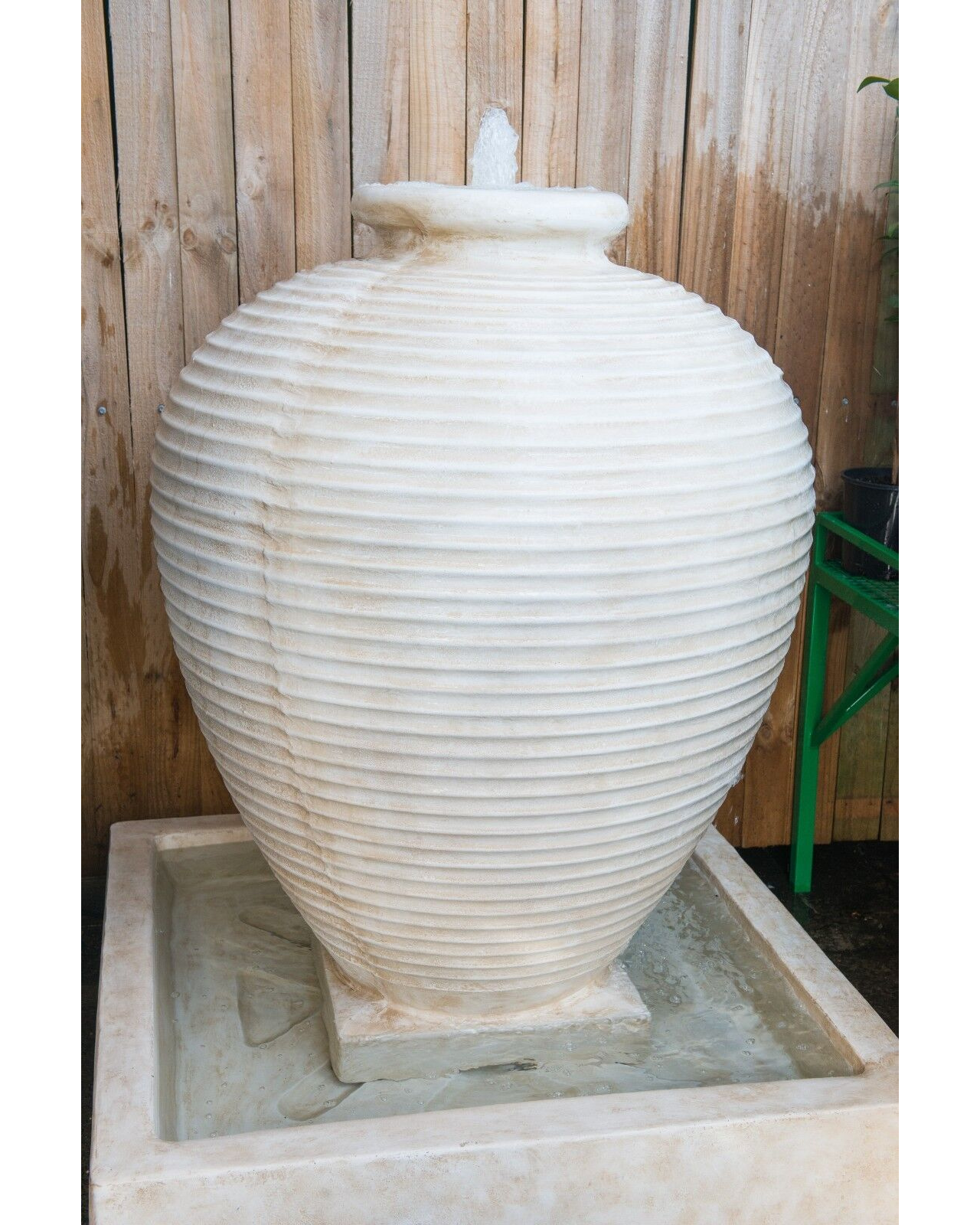

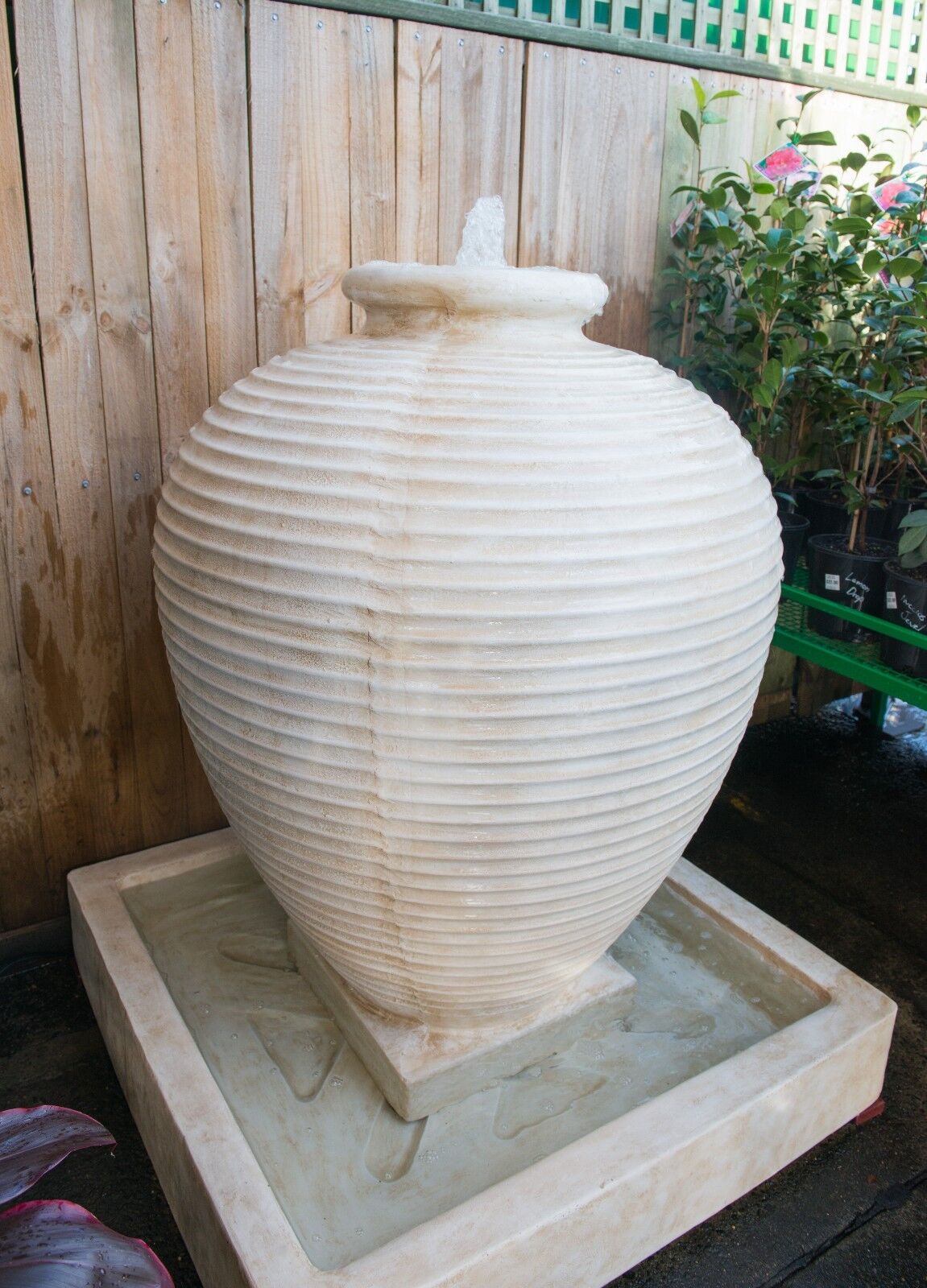
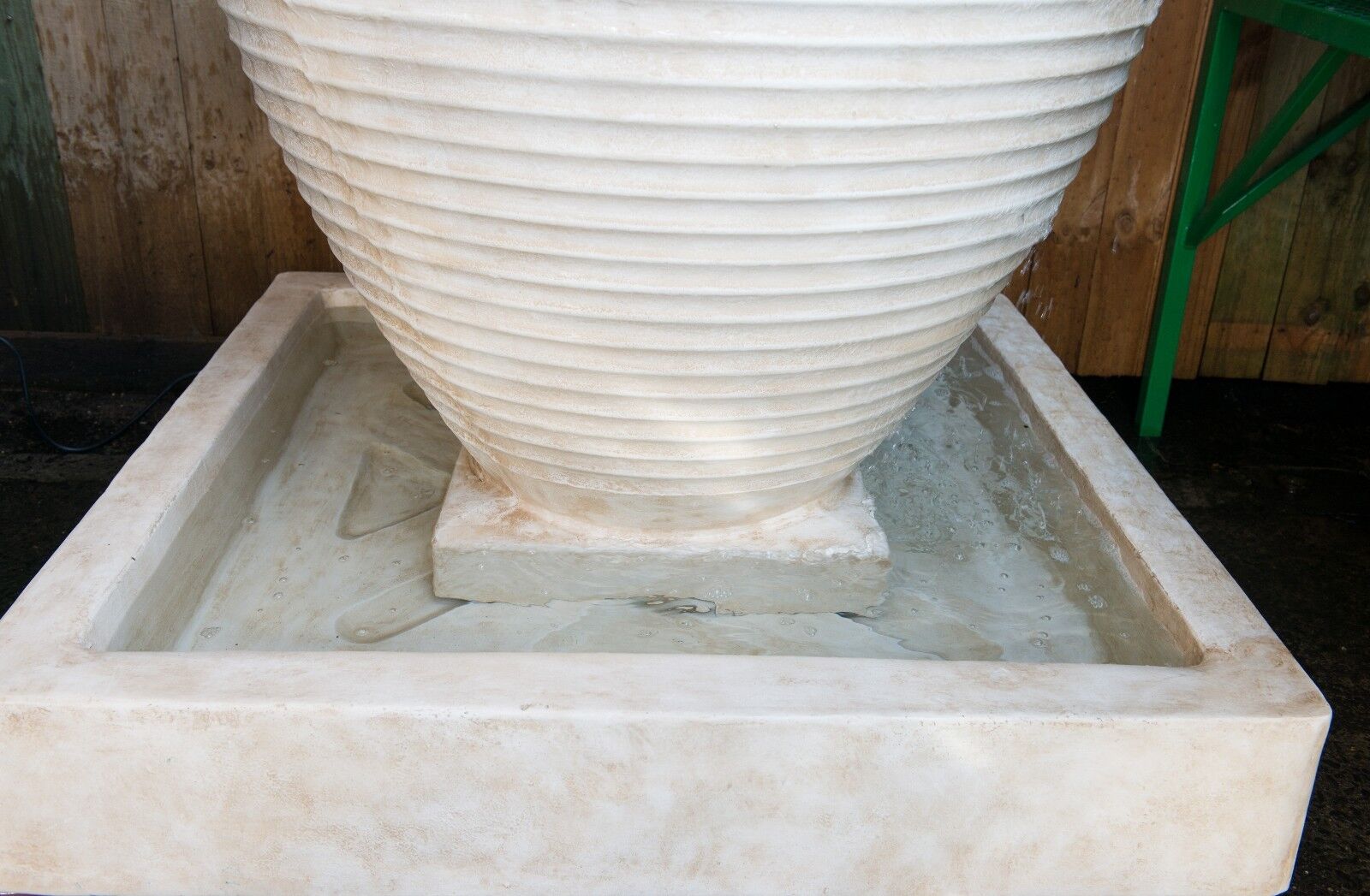
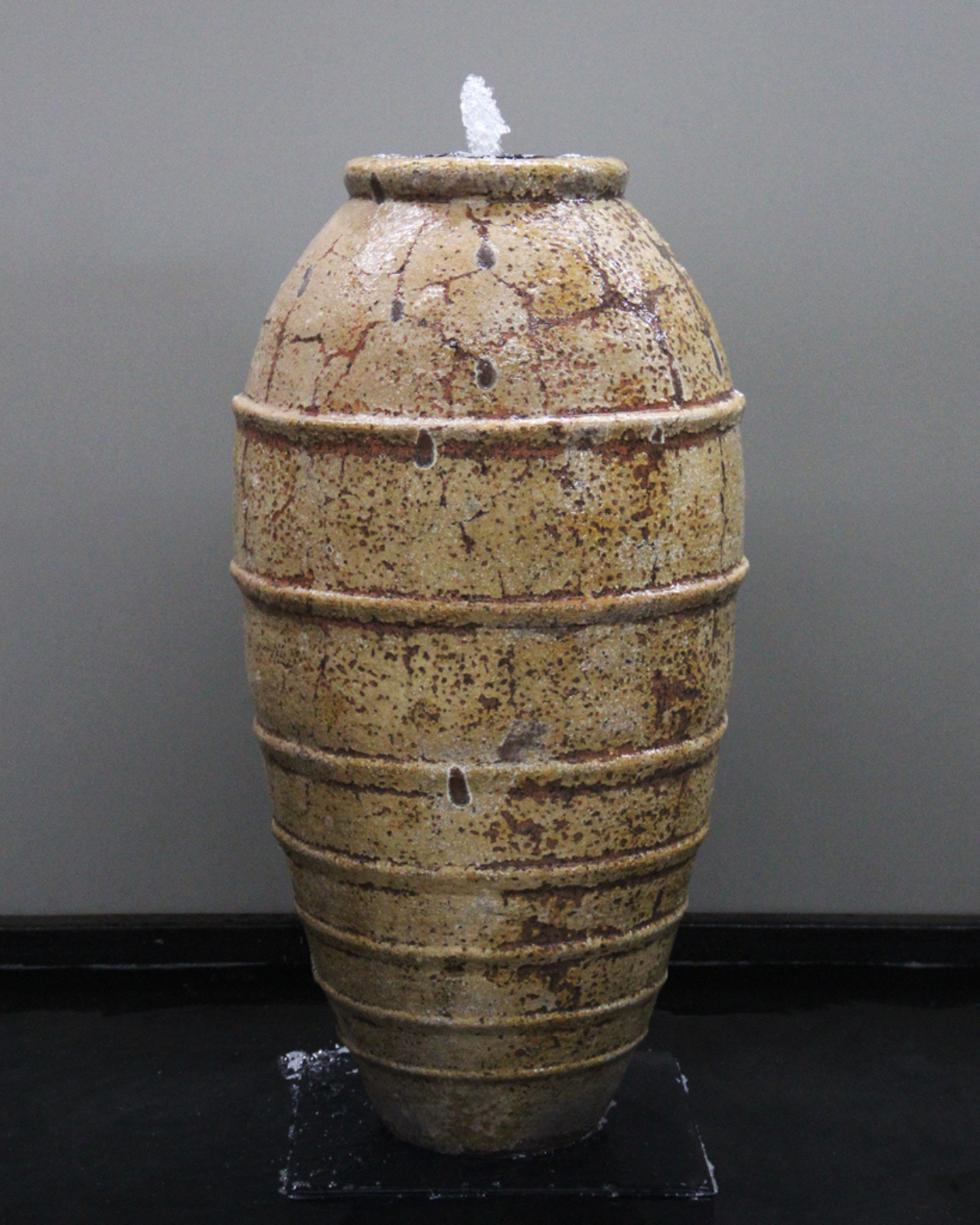

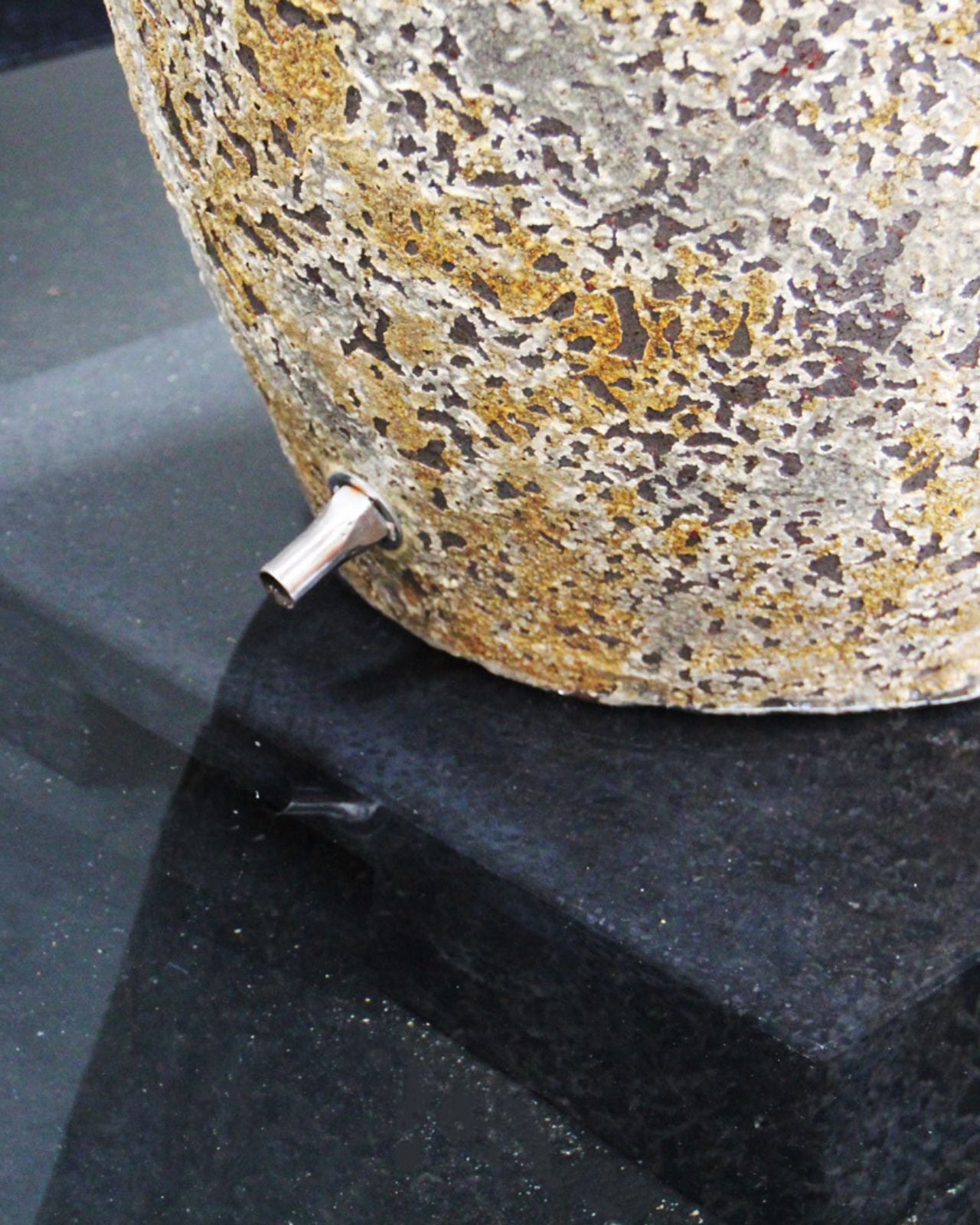
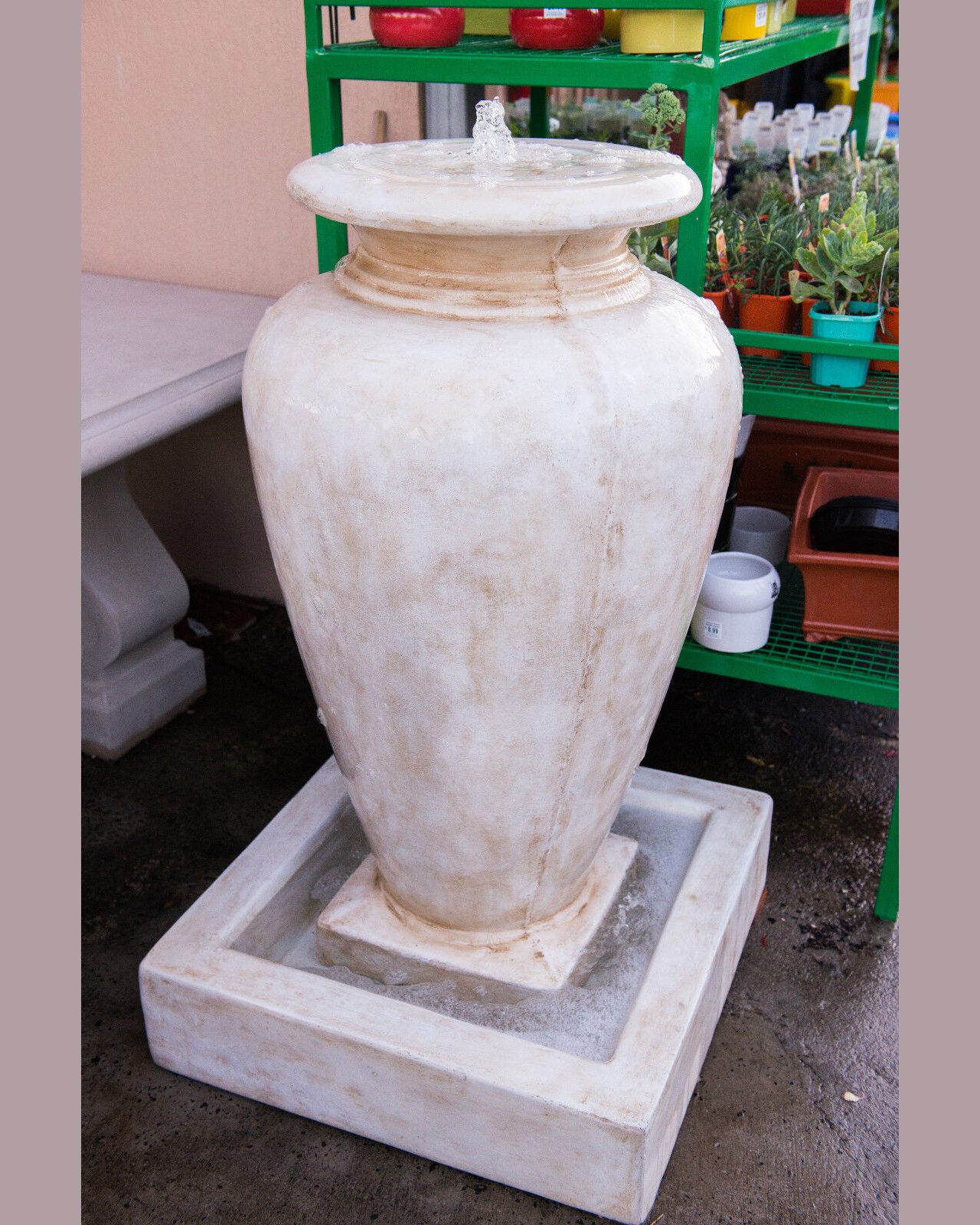

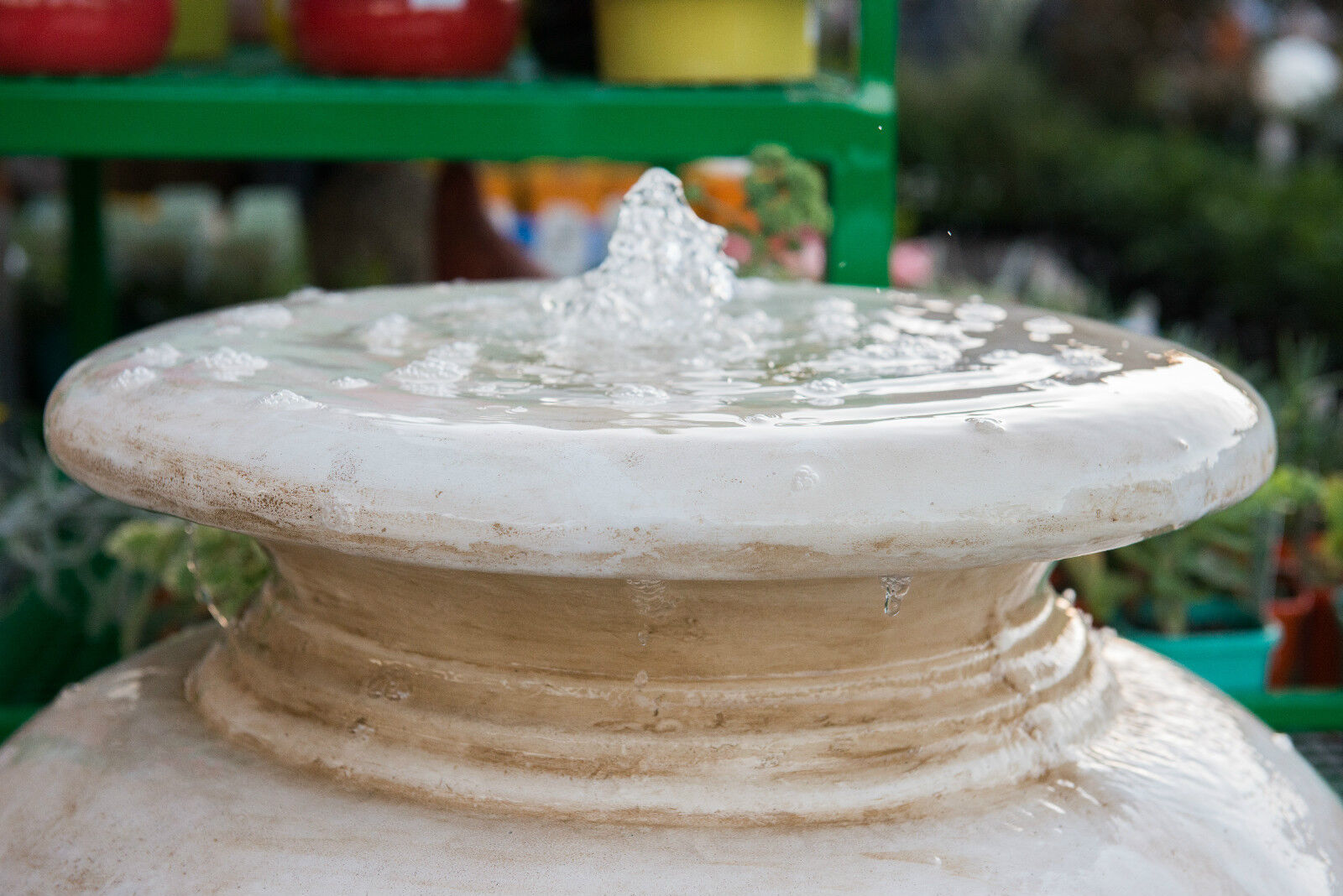
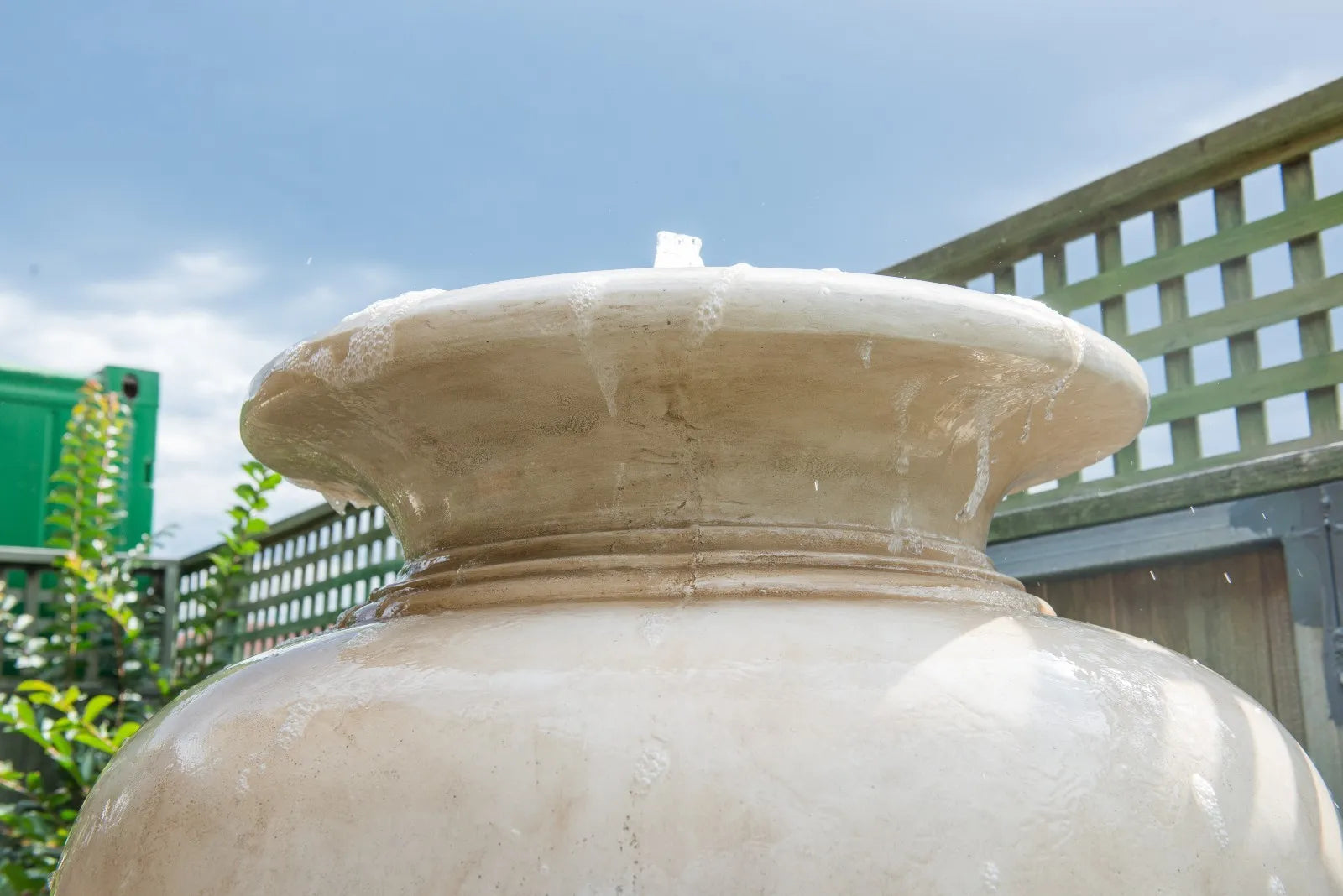
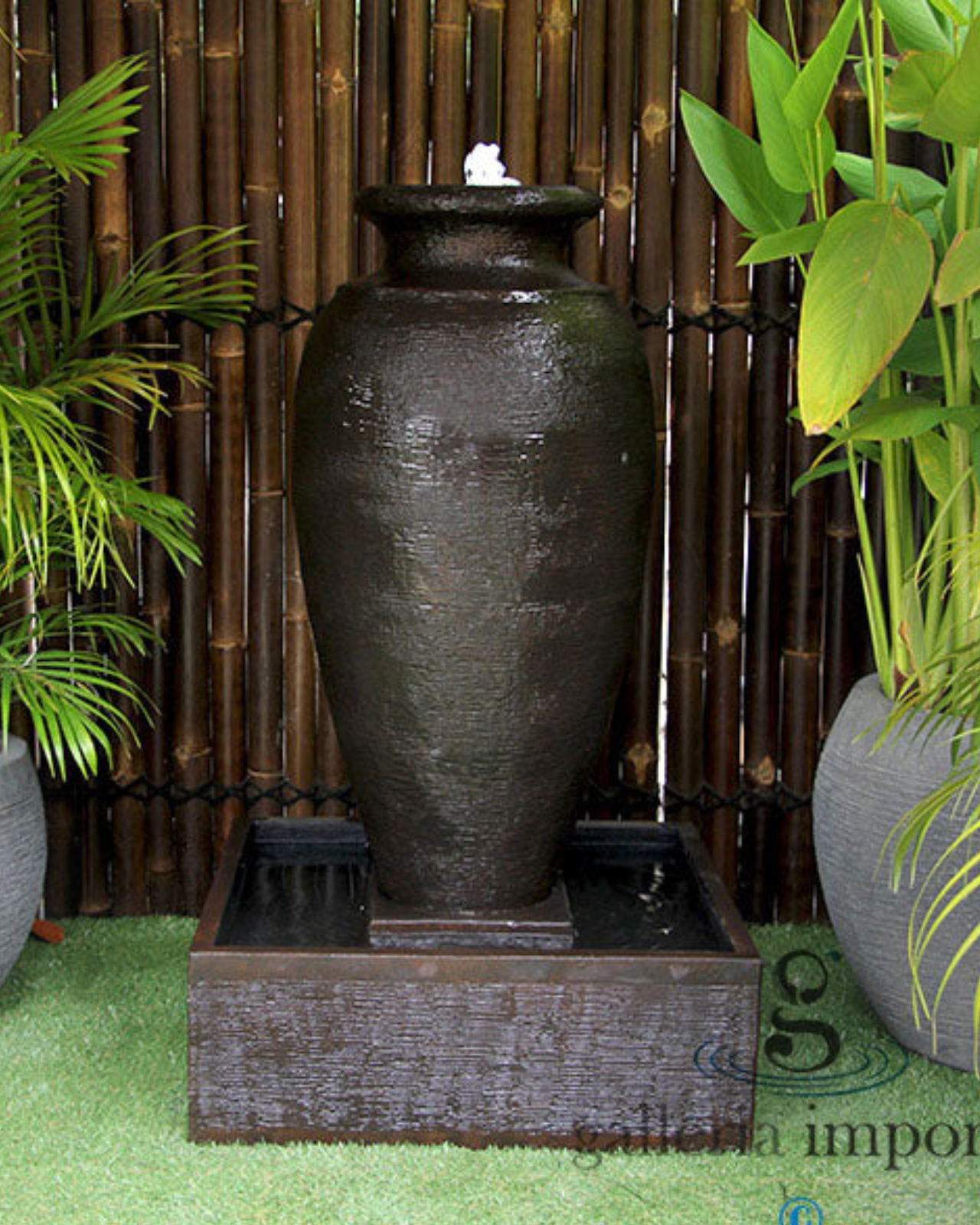

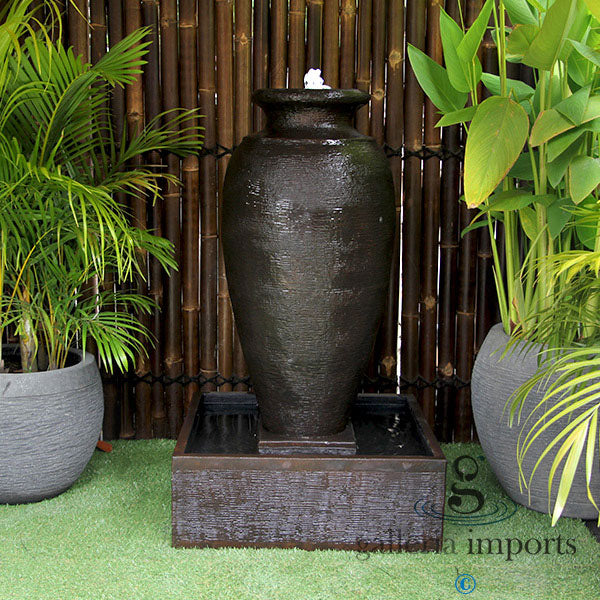
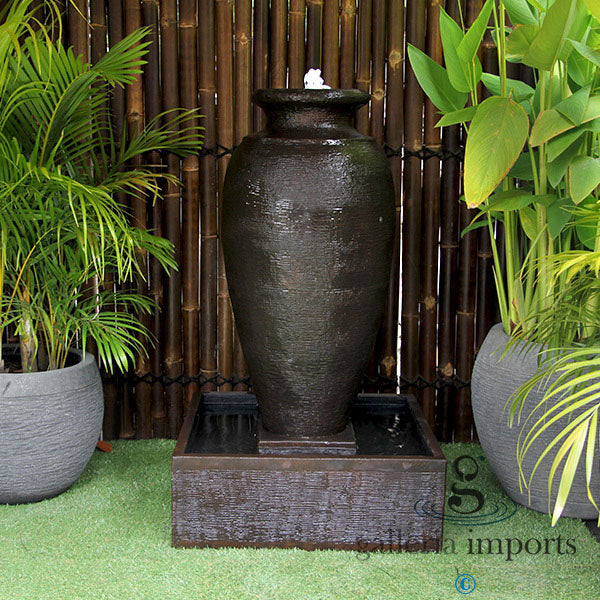
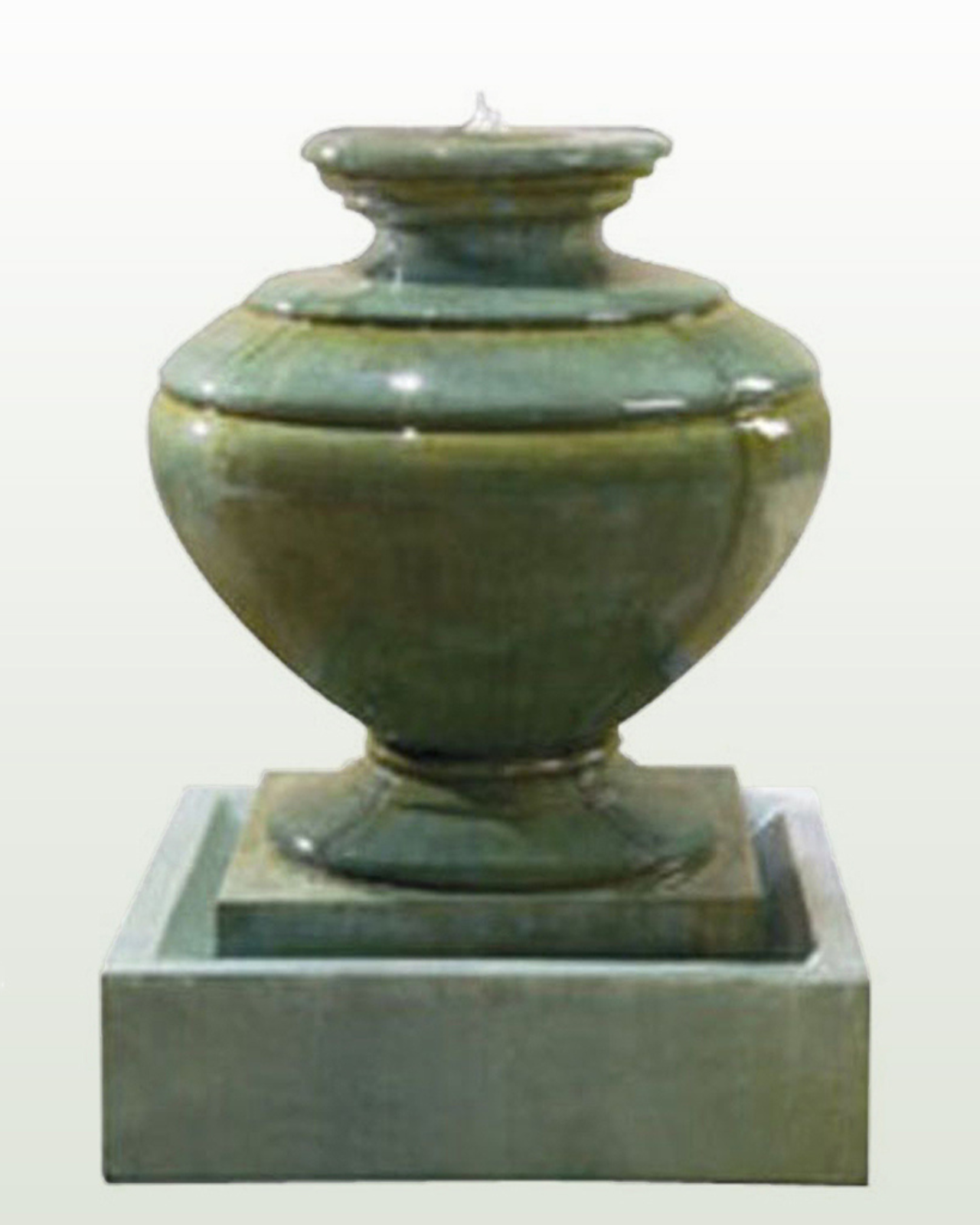
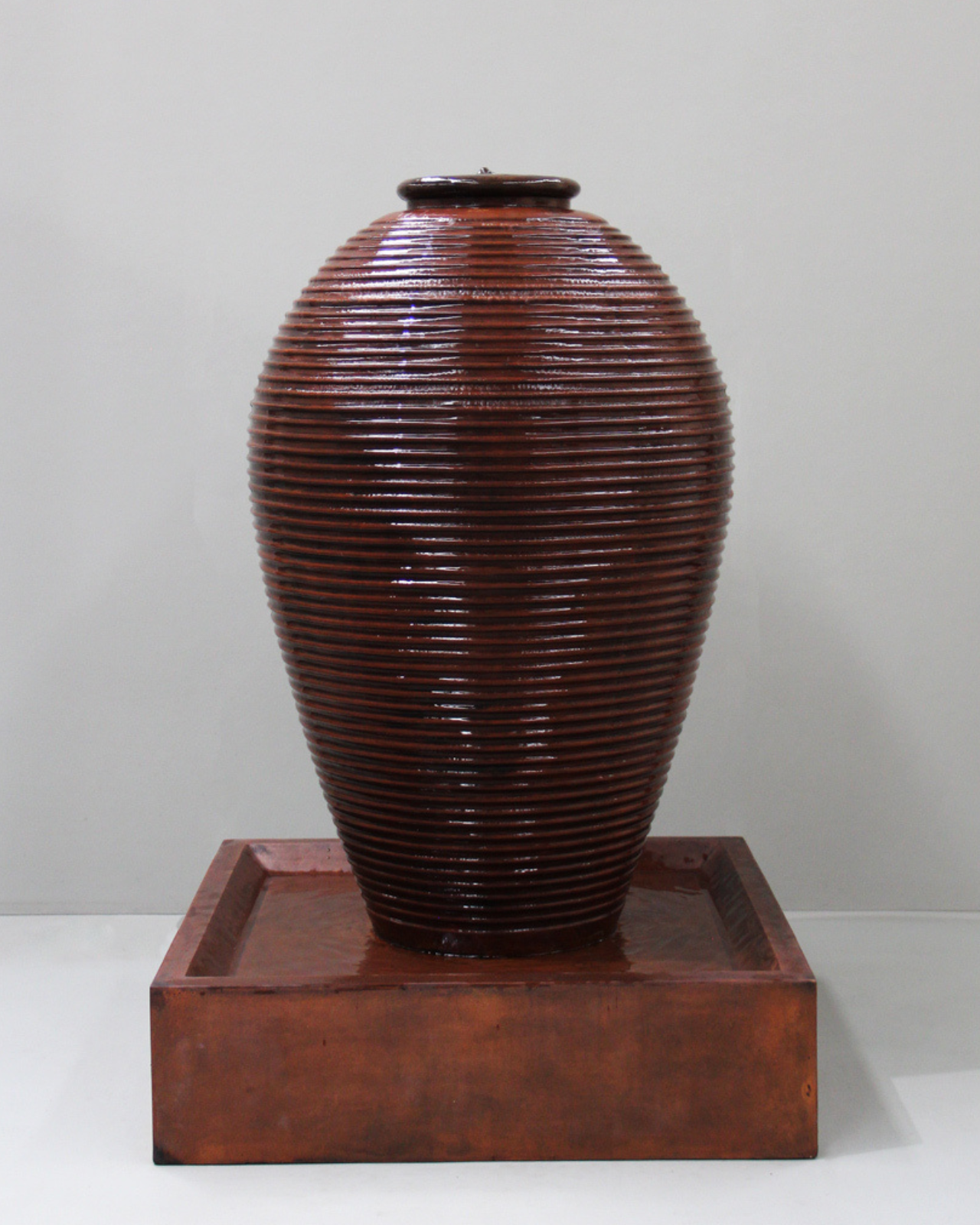
Share:
Concrete Water fountains- a Comprehensive Guide
How to choose the right Water Feature